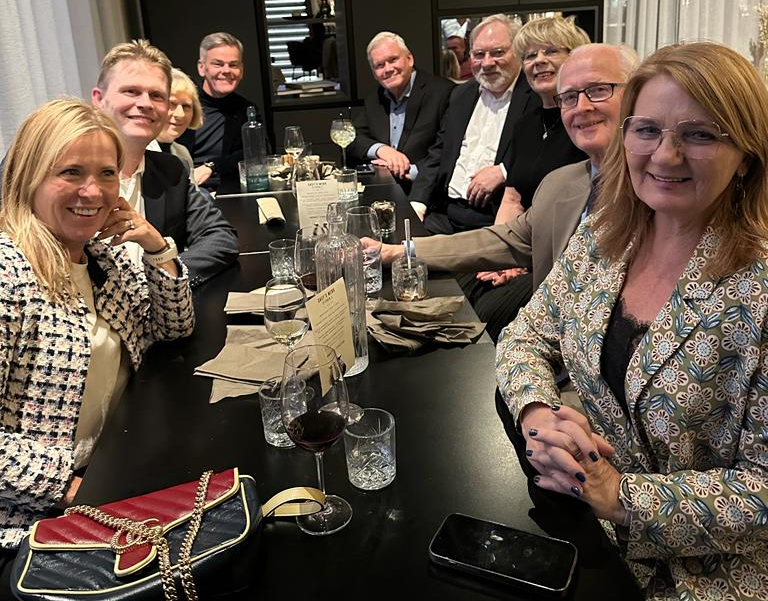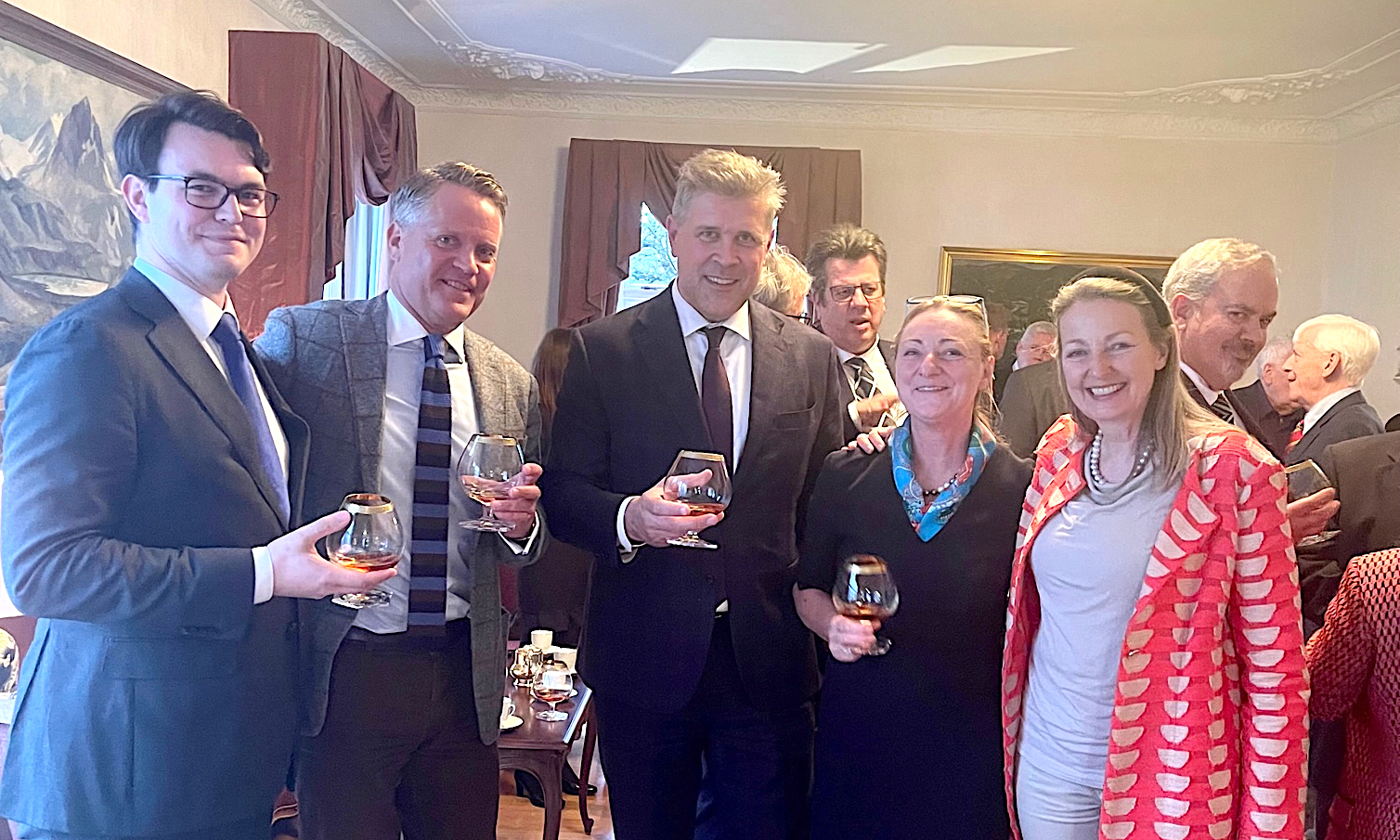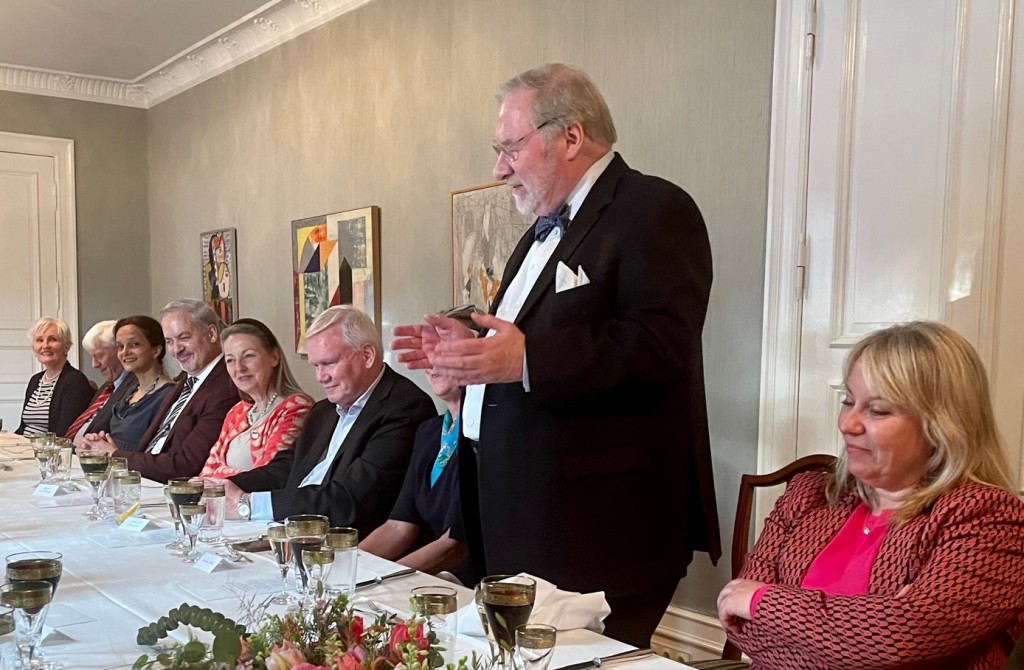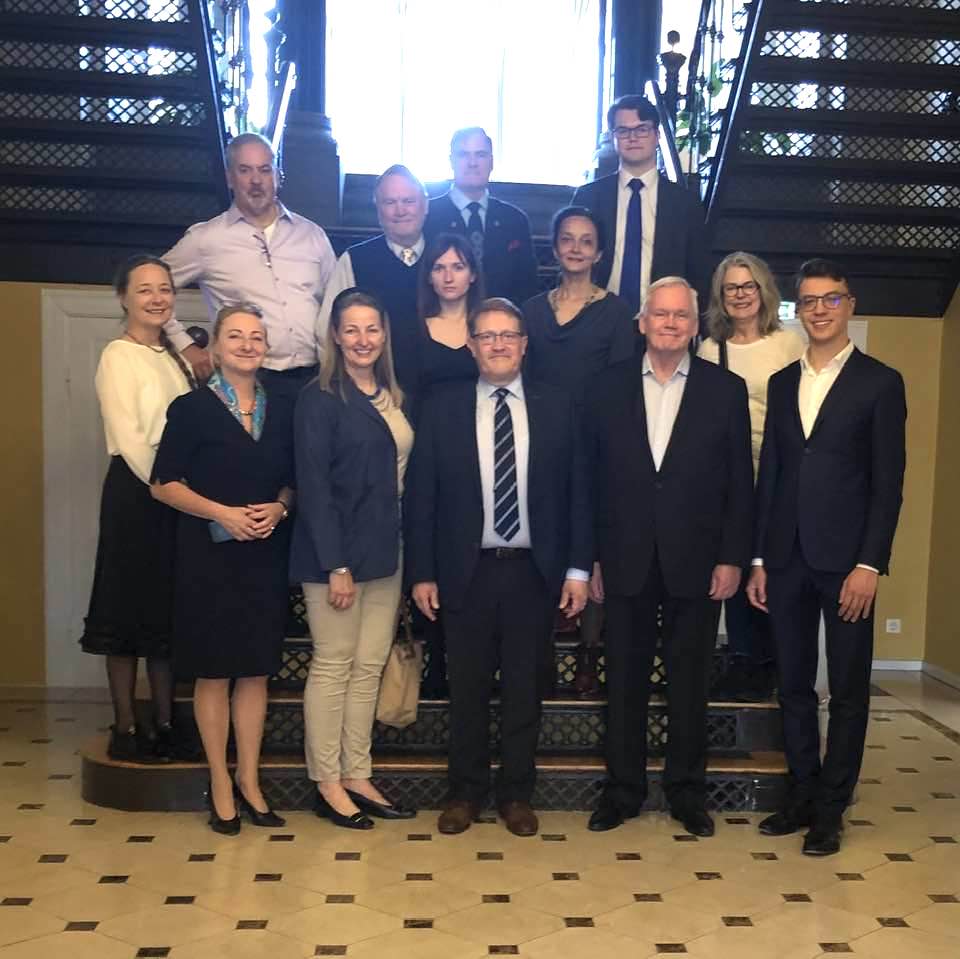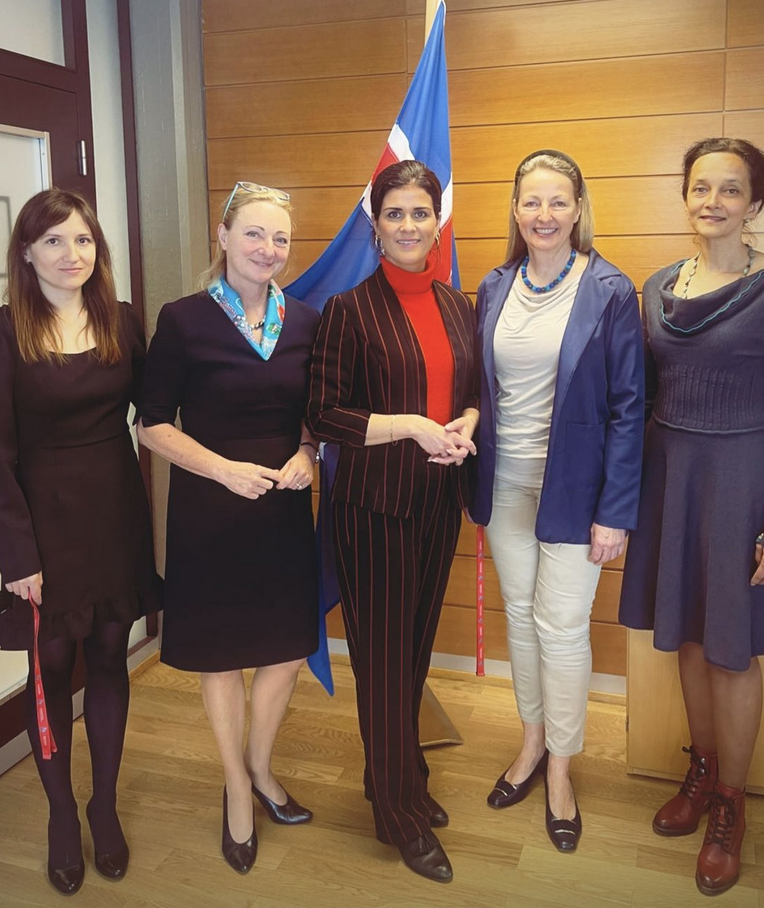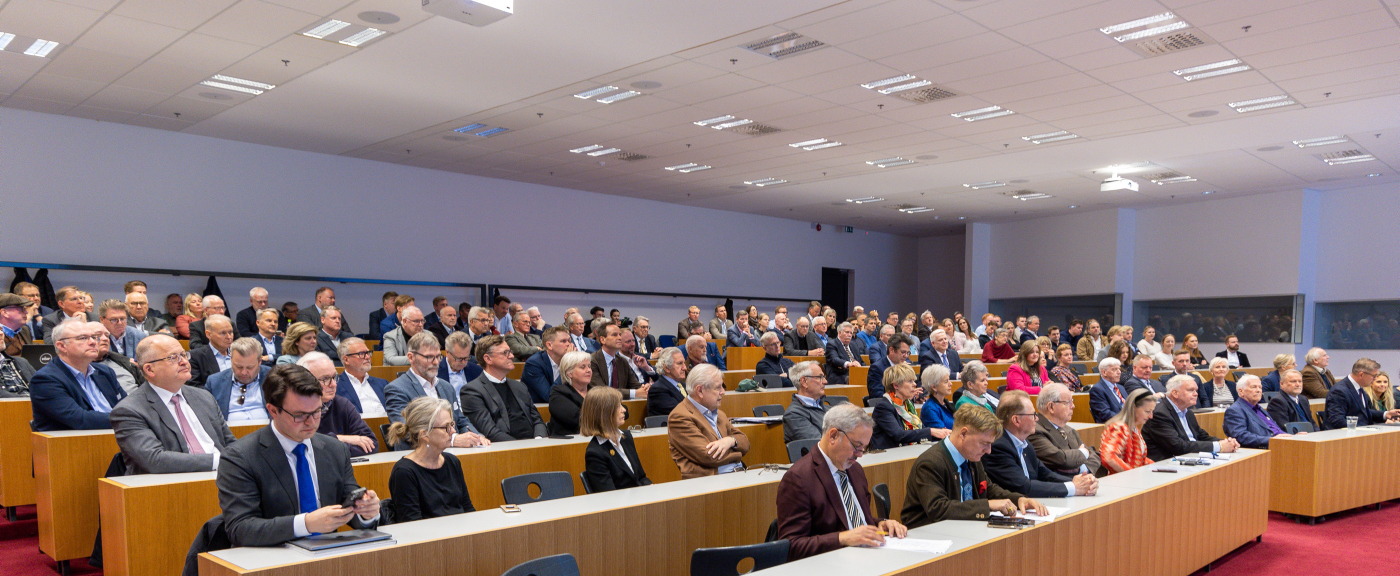 On 12 May 2023, the University of Iceland held a well-attended international conference on the occasion of the retirement of Hannes H. Gissurarson, Professor of Politics, who turned seventy in February. The very diverse topics chosen reflected his many interests.
On 12 May 2023, the University of Iceland held a well-attended international conference on the occasion of the retirement of Hannes H. Gissurarson, Professor of Politics, who turned seventy in February. The very diverse topics chosen reflected his many interests.
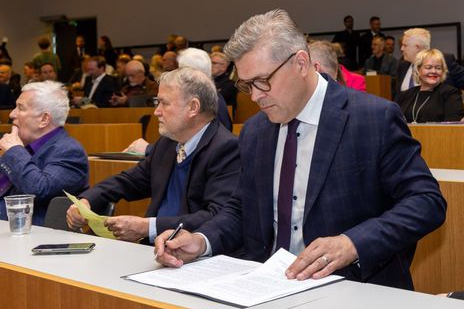
Professors Thrainn Eggertsson and Bruce Caldwell and His Excellency Bjarni Benediktsson.
Professor Stefan Hrafn Jonsson, Dean of the School of Social Sciences, chaired the former session. Dr. Barbara Kolm, Director of the Hayek Institute in Vienna and Vice-Chairman of the Board of the Austrian Central Bank, spoke about how to obtain sound money after the demise of the gold standard in early twentieth century. She recalled Carl Menger’s explanation of money as spontaneously developing, and suggested that Friedrich von Hayek’s idea of competing currencies, public and private, could be a possibility. Economics Professor Bruce Caldwell of Duke University discussed his recent first volume of a biography of Hayek—chosen by the Economist as one of the best books of 2022. He said that many things he had come across in the archives had surprised him, for example how openly and lightly the young Hayek described his experiences in America in letters to his parents and the tension in the 1930s between him and his mother about Austrian politics. The first volume ends in 1950 with Hayek’s dramatic divorce and resignation from his Professorship at the London School of Economics. His Excellency Bjarni Benediktsson, Iceland’s Finance Minister and Leader of the Independence Party, described the 2008 bank collapse in Iceland and how the country had quickly recovered, not least as a result of two important decisions: instead of government bailing out the banks in 2008, depositors became priority claimants on the estates of the banks which went into resolution; and if other foreign creditors were later to receive in foreign currencies their shares of the bank estates, they had to accept substantial discounts on their claims.
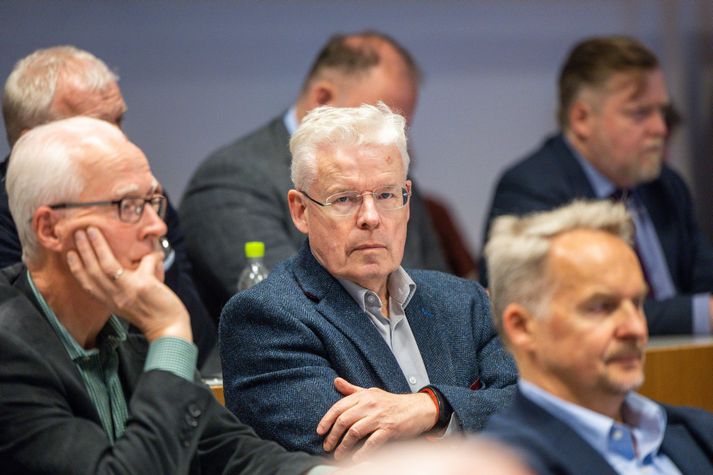
Among the 160 guests were Baldur Gudlaugsson, former Permanent Secretary in the Finance Ministry, His Excellency Einar K. Gudfinnsson, former Speaker of Parliament, and His Excellency Sigmundur D. Gunnlaugsson, former Prime Minister.
Her Excellency Gabriela von Habsburg, the former Ambassador of Georgia to Germany, gave an account of a small country at the other end of Europe, Georgia, which regained her independence in 1991, after the dissolution of the Soviet Union. Numerous times, Russia has tried to destabilise Georgia and now she controls around 20 per cent of Georgian territory. The economic reforms under the Sakaashvili governments in 2004–2013, designed mainly by Kakha Bendukidze, were a huge success, but unfortunately after that Georgian politicians, encouraged by Putin in Moscow and local oligarchs, have partly returned to their old bad ways, while opposition to these politicians is growing. Economics Professor Thrainn Eggertsson of the University of Iceland observed that an historic experiment was now being conducted in Asia. It was the attempt of Chinese President Xi to combine economic growth and autocratic rule, using sophisticated new technology to monitor and control his subjects. This large-scale experiment might fail, but if it succeeded, liberal democracies would find themselves in trouble. Politics Professor Stephen Macedo of Princeton University expressed his concern about the polarisation of American politics and the lack of civil discourse. Freedom of thought was being threatened from both right and left.
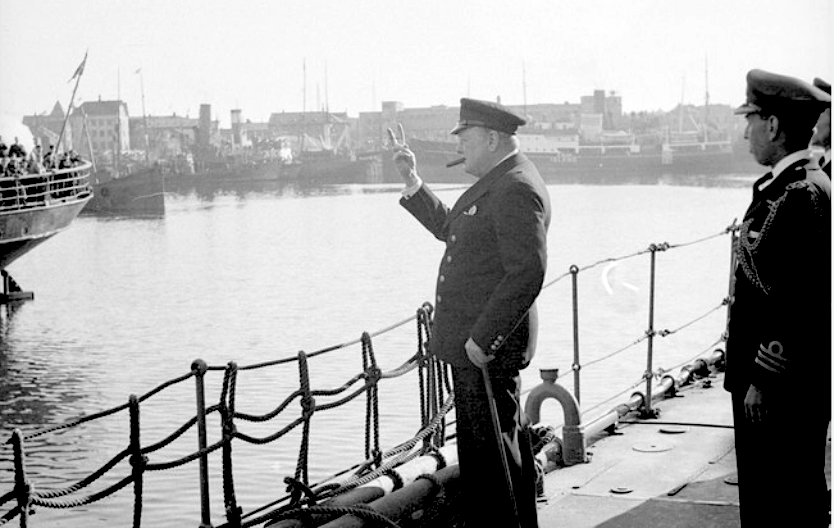
Churchill 1941 in Iceland, a crucial outpost in the war on the North Atlantic.
Dr. Stefania Oskarsdottir, Associate Professor of Politics at the University of Iceland, chaired the latter session. History Professor Thor Whitehead of the University of Iceland described the extraordinary situation in which Iceland found herself in the spring of 1941. The government of Winston Churchill in the United Kingdom desperately needed the British forces occupying Iceland for other purposes, while United States President Franklin D. Roosevelt was quite willing to take over the island’s military protection. But Roosevelt had to obtain the consent of the initially reluctant Icelanders and therefore he accepted almost all their demands, including a lucrative trade deal and the eventual recognition of a republic. This was the first, and crucial, step by the United States into the war. Dr. Neela Winkelmann, former Director of the Platform of European Memory and Conscience, described the history and aims of the Platform which was formally established in 2011, after a 2009 resolution in the European Parliament about the necessity to keep alive the memory of the many victims of totalitarianism in Europe, Stalin’s communism and Hitler’s national socialism. Yana Hrynko, Curator of the Holodomor Museum in Kyiv, recalled the Great Famine in the Soviet Union in 1932–1933 which hit Ukraine particularly hard. It was a deliberate act of imposing collectivisation upon the farmers and their families. Holodomor means killing by starvation. Now Russia was waging a brutal war against Ukraine, trying again to suppress the Ukrainian people.
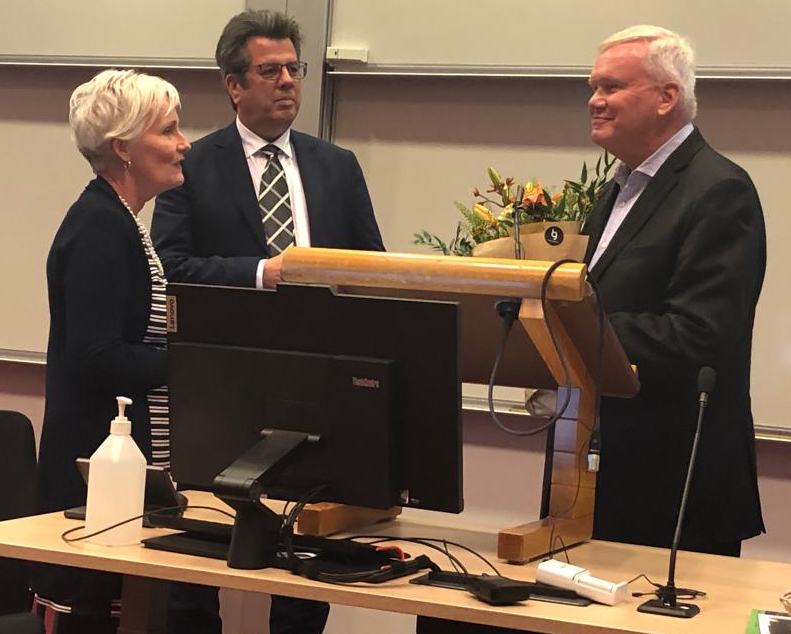
Dr. Stefania Oskarsdottir and Dean Stefan Hrafn Jonsson give Professor Gissurarson flowers and a fare-well present from the School of Social Sciences.
Economics Professor Ragnar Arnason of the University of Iceland explained the main conclusion of natural resource economics: that open access to a resource, say a forest, an oil well, or a fishing ground, would lead to its over-utilisation unless rules and institutions were developed that somehow limited access. The Icelanders had limited access to the fertile fishing grounds within their EEZ, Exclusive Economic Zone, by a system of ITQs, Individual Transferable Quotas, so that the Icelandic fisheries were both sustainable and profitable. There was however enormous waste found in world fisheries, the Sunken Billions. Dr. Tom G. Palmer, Vice-President of International Affairs at the Atlas Network, an umbrella organisation for hundreds of free-market institutes around the world, discussed the strategy of liberty in this uncertain age. He pointed out that now liberal democracy seemed to be retreating in the world, against the forces of populism and authoritarianism, even against new forms of totalitarianism. Populism, with its creation of artificial enemies within or outside countries, was a great threat. Professor Hannes H. Gissurarson made a few closing remarks, received a gift from the School of Social Sciences, and invited the audience to a reception on the premises.
Station Two, the private television station, was at the conference and interviewed Professor Gissurarson:
Thjodmal, a magazine of current affairs, is going to publish the papers given at the conference, and a recording of it will soon be put on Youtube. Among foreign guests attending the conference were the Norwegian poet and painter Öde Nerdrum (who grew up in Reykjavik as the son of painter Odd Nerdrum), Maksymilian Woroszylo, leader of the young conservatives in Luxembourg, German film maker Andreas Jürgens, Britt Schier, Manager of the Austrian Economics Centre in Vienna, and Robert Tyler, Senior Advisor at the Brussels think tank New Direction.
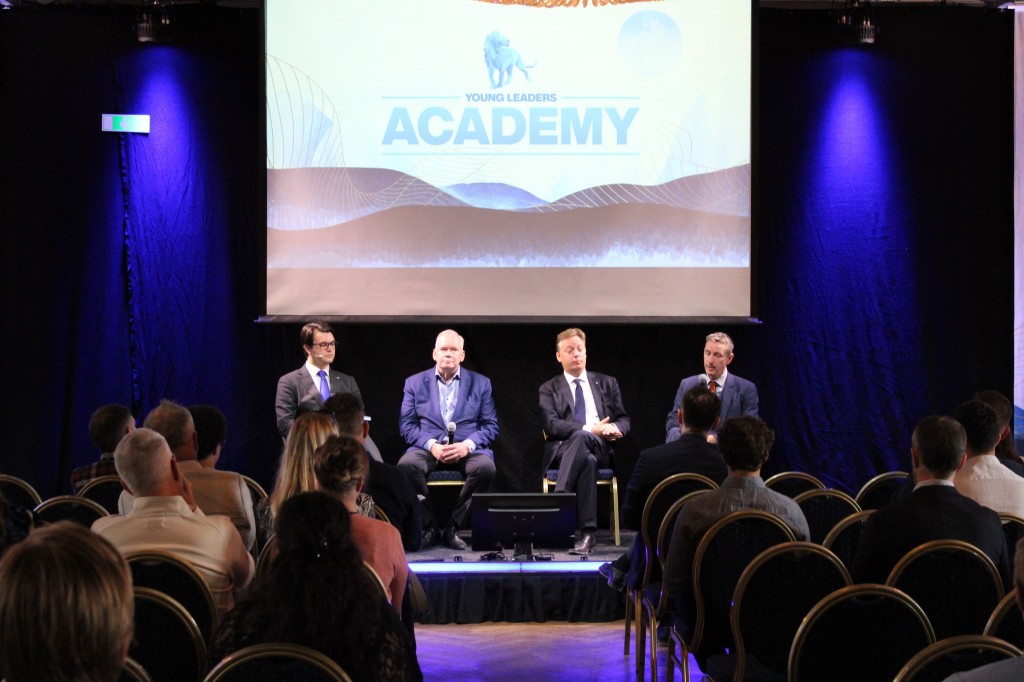 Hannes H. Gissurarson, Professor Emeritus of Politics at the University of Iceland, was one of the lecturers in a summer school for young conservatives in Sundbyholm Castle near Eskilstuna in Sweden on 18 June 2023. He posed two questions. The first was why conservatives should support the free market. The answer was that the free market was nothing but a venue for individuals to pursue their own goals, including the practices and traditions that conservatives wanted to protect and develop. Government on the other hand tends to undermine such practices and traditions. With its monopoly on force it was often a much more radical and dangerous factor of transformation than the market. Gissurarson pointed out that social units like the family and the nation were not totally fixed and immovable. Individuals were born into one family and established another one. People move between states If you are to love your country, it has to be lovely, to quote Edmund Burke. The Nation is a daily plebiscite, Ernest Renan said.
Hannes H. Gissurarson, Professor Emeritus of Politics at the University of Iceland, was one of the lecturers in a summer school for young conservatives in Sundbyholm Castle near Eskilstuna in Sweden on 18 June 2023. He posed two questions. The first was why conservatives should support the free market. The answer was that the free market was nothing but a venue for individuals to pursue their own goals, including the practices and traditions that conservatives wanted to protect and develop. Government on the other hand tends to undermine such practices and traditions. With its monopoly on force it was often a much more radical and dangerous factor of transformation than the market. Gissurarson pointed out that social units like the family and the nation were not totally fixed and immovable. Individuals were born into one family and established another one. People move between states If you are to love your country, it has to be lovely, to quote Edmund Burke. The Nation is a daily plebiscite, Ernest Renan said.

